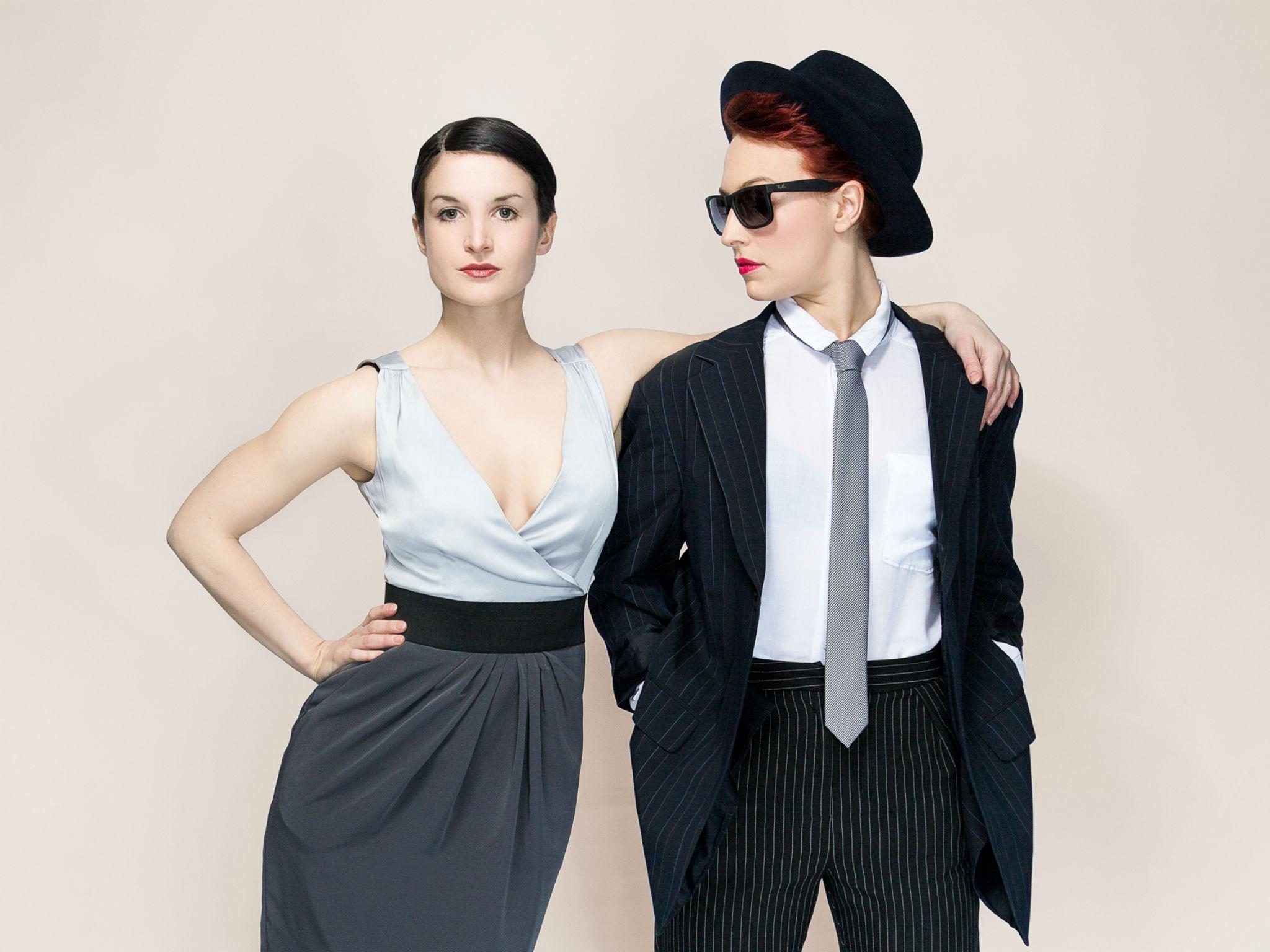Edinburgh Festival: Two Man Show, Summerhall, review: 'A terrifically generous piece of writing'
A look at masculinity and patriarchy, Two Man Show is played by two women

Two Man Show is, in fact, performed by two women, Abbi Greenland and Helen Goalen, aka RashDash. It’s billed as a look at masculinity and patriarchy, and begins with the sort of bonkers stridency that RashDash’s high-energy shows are known for. Goalen, Greenland and musician Becky Wilkie are dressed in retro-futuristic metallic capes, their amplified voices pitched to an alien, shrill squeal, as they deliver an historicising lecture on how and why male dominance is in no way natural or inevitable, actually. Patriarchy “springs from fear”.
They match their unapologetically loud, snotty and spot-on deconstruction with equally loud blasts of punkish songs.
Then we’re plunged into a naturalistic drama about two awkward brothers, Dan and John, who fail to communicate while their father is dying. They’re played by Goalen and Greenland, who intersperse this testy domestic drama with dance sequences, where they hurl each other about.
Sometimes tender, sometimes tough, these are performed in increasing states of undress. The meaning remains opaque. They must be, I decide, a feminine energy display to counteract the emotional constipation of the blokes.
Other movement sections seem more in line with the provocative opening: here’s Goalen’s naked body posed by Greenland in the shape of classical male statues (David, the Thinker); move a hand and stick out a hip, and you’ve got a cheesecake female nude. Noble; sex object. It’s an effectively made point. A send-up of the fashion industry seems, comparatively, a bit lame.
But around these, the brothers’ storyline really begins to grate. So tired, so clichéd seems the writing; such cruel, callous, macho-macho manly men. I didn’t believe in them, and I thought about how furious I’d be if I watched a show purporting to be about feminism, written and performed by men, where women were such cut-out caricatures.
Then you begin to see what they’re up to. These sections are a deliberately tired example of what you’d expect from a British play billing itself as an exploration of masculinity. RashDash show that that isn’t good enough. The language we have for talking about how men can’t always talk to each doesn’t work. And our theatrical formats don’t work either.
Hence the dancing. But when Goalen starts another “dancing bit”, Greenland remains in her male character, John. He bolshily strides around asking “what’s the point?” Why can’t they use words? (This despite the fact that John, as a character, has been the perfect illustration of how words don’t work, in real life and in the theatre.)
Goalen defends the dancing: “The words don’t exist that say exactly what I want to say.” Plus, language – we know this – is gendered, is man-made. RashDash are anticipating and answering their critics, from inside their show.
It’s clever, and it can feel a bit too coldly clever. But the final section of Two Man Show suddenly soars to new heights. Truth bursts out the seams of their carefully (de)constructed concept, in two monologues about being a woman. Greenland’s is a furious whirlwind, the angry righteousness of a woman who has masculine qualities: she shouts about taking up space and fighting and “fuck tenderness”. Goalen, meanwhile, seems to shrink and soften: hers is a confession of loving traditional femininity, being looked after, being ladylike. Both take clichés of ‘masculine’ and ‘feminine’ behaviour and allow them, liberate them.
It’s a terrifically generous piece of writing, even if all it really offers is a reminder that there are as many complicated, contradictory ways to be a woman as there are to be a man. None of this stuff is easy,and nor is this play. Two Man Show is messy, and maddening. And it needs to be.
Join our commenting forum
Join thought-provoking conversations, follow other Independent readers and see their replies
Comments
Bookmark popover
Removed from bookmarks